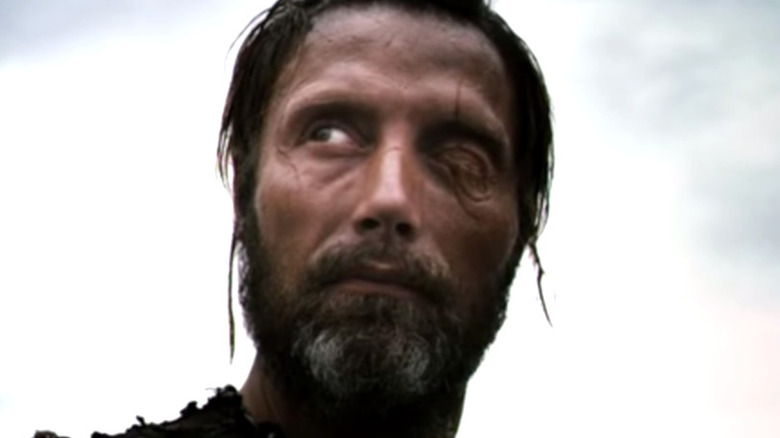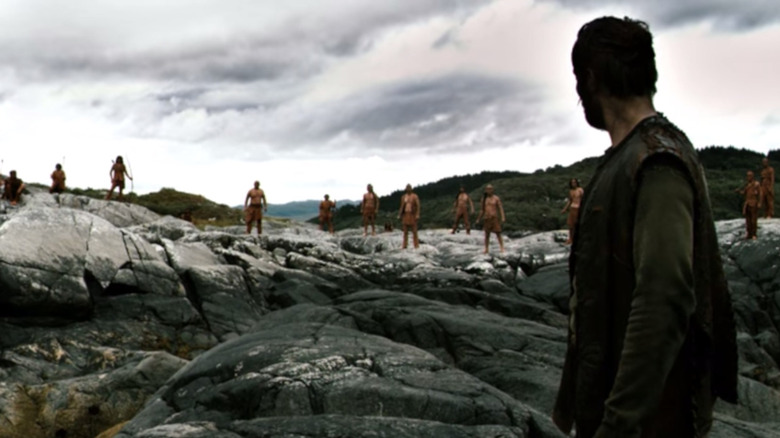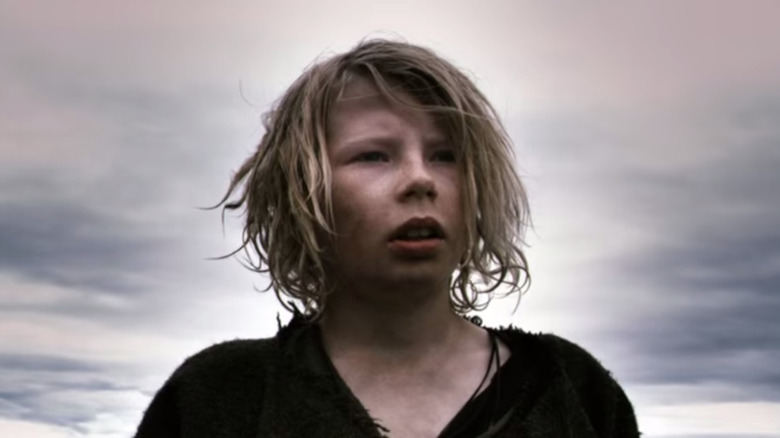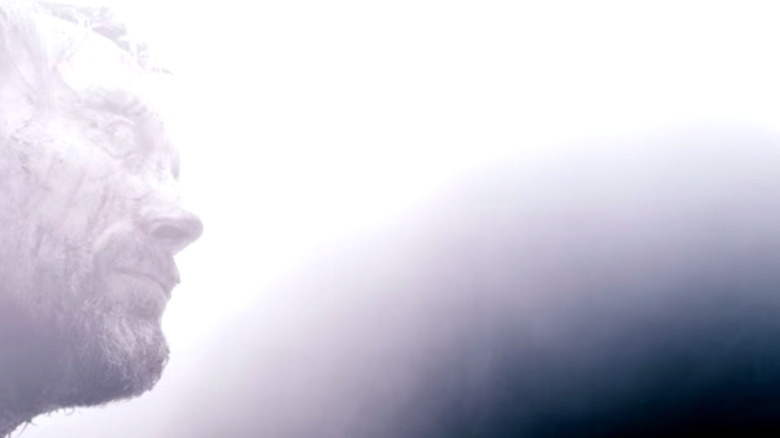The Ending Of Valhalla Rising Explained
The 2009 film "Valhalla Rising" was a milestone for its director, Nicholas Winding Refn, and its star, Mads Mikkelsen. Although Refn had already made "Bronson" with Tom Hardy, and Mikkelsen had appeared in the James Bond film "Casino Royale," "Valhalla Rising" cemented them both as important creators in the minds of English-speaking movie goers outside their native Denmark. The film is a visual spectacle with very little dialogue, and none at all from Mikkelsen's central character. That tends to leave a lot of viewers, including those who've enjoyed the film, a bit confused about what it all means, especially the ending.
Hopefully this article can help with that.
Mikkelsen's character is referred to only as One Eye, and he's a skilled Norse warrior turned slave who kills his masters and escapes his bonds, alongside a young boy (Maarten Stevenson) who had been enslaved alongside him. The pair set sail on a boat with a group of Norse Christian missionaries who are planning to voyage to the Holy Land to join the Crusades. However, they get hopelessly lost in the foggy North Atlantic and end up in North America, where they are attacked by Native warriors.
One Eye is more than just a man
One Eye seems to have supernatural skills as a fighter, and he also has the gift of prophesy, dreaming and having visions of things before they happen throughout the film. His vision of an arrowhead leads to finding the weapon that enables his escape from slavery, another vision leads him and the boy to join a sea voyage, and at the end of the movie he is completely unsurprised by the appearance of the Native Americans, and his death at their hands. After they kill him, however, his placid face is seen in the foggy sky.
Viewers familiar with Norse mythology will guess pretty quickly who One Eye seems to be, although Nicholas Winding Refn has never directly confirmed it. Nevertheless, it's as clear as anything in the film — One Eye is actually Odin, the one-eyed Norse God of war, wisdom, prophecy, and the sky. Odin sacrificed his eye for wisdom, which enables him to see the future, just as One Eye does in the movie. He was also known for walking the Earth in human guise, which appears to be what he's doing in this story.
Only the Boy understands him
As a pagan god in human form, One Eye cares nothing for the Christian missionaries, most of whom he either kills or lets die over the course of the film. The boy, on the other hand, is a pagan (i.e. a worshiper of Odin) and is therefore special to him and under his protection. At the end of the film, he even sacrifices his life (at least in this particular human incarnation) for the boy, who the Native warriors leave alone after One Eye is dead. Over the course of the movie, there are several moments where the boy seems to understand One Eye's thoughts and intentions, even though Mikkelsen never speaks a word out loud or even in sign language. This is, after all, how gods are generally known to speak to humans: silently, inside their minds.
Whether the boy understands One Eye's true identity is sort of beside the point. Either way, he's awed by this powerful figure who protects him. The Christian characters, even if they survived longer, would have a tough time converting the boy, since his own god is far more directly involved in his life than theirs.
One Eye dies but lives on
When One Eye's face appears in the sky, that might represent Odin's return to Valhalla, his heavenly mead hall where he drinks with the honored dead (hence the title of the movie). However, there is also a sense in the film that Odin's time is ending. The three-way tension between European paganism, Christianity, and Native American culture is the conflict of the future, and for good or ill we know that the Christians will largely win the future, no matter how ill-prepared they seem in the time of this story.
These themes are pretty clear in the film even if you just read One Eye as a human pagan who happens to have the same number of eyes as Odin, but if you view him as the god himself, the story becomes even more direct. And after all, "One Eye" is one of Odin's many nicknames, something Refn and Roy Jacobson must have known when they wrote the script.



